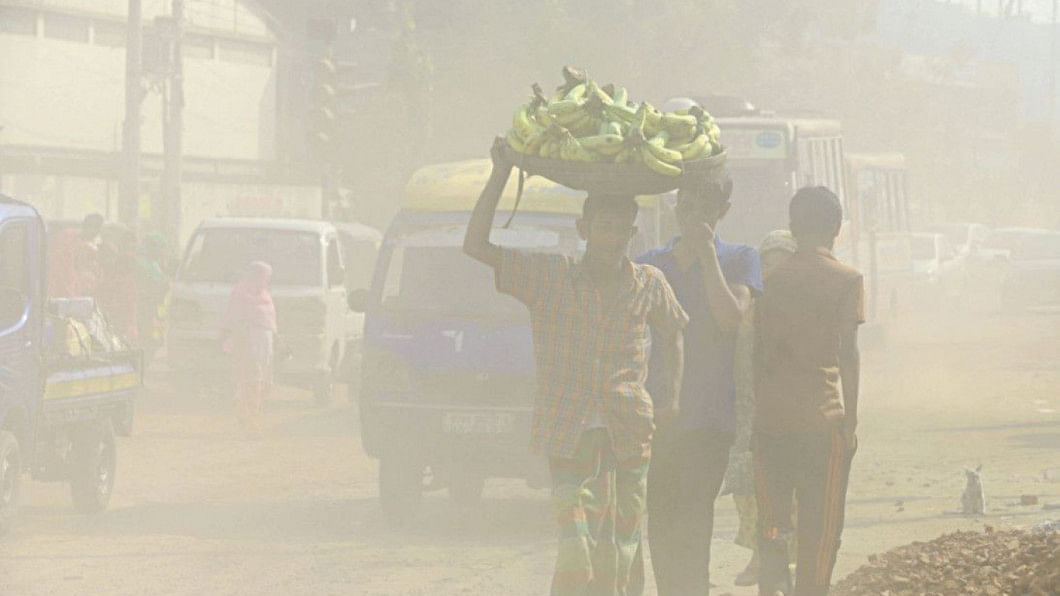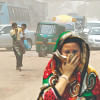Environmental protection laws need stricter enforcement

The Global Liveability Index 2023, published by Economist Intelligence Unit, listed Dhaka as the seventh least liveable city in the world. According to the Climate Risk Index (CRI) 2021, by German NGO Germanwatch, Bangladesh ranks seventh among countries most affected by extreme weather events in 2000-2019. And, according to the World Bank, air pollution caused 78,145-88,229 deaths in Bangladesh in 2019. The vast majority of these deaths were caused by exposure to PM2.5, which are tiny particles that can penetrate deep into the lungs and cause respiratory problems.
It is safe to say that Bangladesh is one of the most polluted countries in the world, with an average annual concentration of fine particulate matter (PM2.5) of 83.3 micrograms per cubic metre (µg/m³). The safe level of PM2.5 concentration is 5 µg/m³, according to the World Health Organization. Bangladesh has a rapidly growing number of vehicles, which contribute to air pollution in major cities like Dhaka and Chattogram. To add to this, large-scale industrial projects have been undertaken in environmentally vulnerable locations. Under the Paris Agreement, as part of its Intended Nationally Determined Contributions, Bangladesh has agreed to decrease greenhouse gas (GHG) emissions by five percent unconditionally and by a further 10 percent subject to financing from the international community.
Bangladesh has a number of environmental laws in place, but enforcement is often weak. The most important aspect of these laws is utilising various provisions of the Bangladesh Environment Conservation Act (BECA) 1995. It provides a comprehensive framework for environmental protection and establishes the Department of Environment (DoE) as the lead agency for environmental protection, giving it the power to regulate pollution, enforce environmental standards, and grant environmental clearances.
Meanwhile, the Environment Court Act, 2000 establishes specialised environment courts to deal with environmental offences and violations, meant to ensure speedy and effective resolution of environmental disputes.
The Forest Act, 1927 regulates the conservation, management, and utilisation of forests in Bangladesh, addressing issues such as deforestation, illegal logging, and forest encroachment.
Bangladesh's Wildlife (Conservation and Security) Act, 2012 aims to protect and conserve wildlife species in Bangladesh, including endangered species, by prohibiting hunting, trading, and trafficking of wildlife.
For the protection, conservation, and management of water resources in the country, Bangladesh Water Act, 2013 focuses on covering issues such as water pollution, river basin management, and water allocation.
Despite these laws and regulations, environmental degradation continues to be a major problem. This is due in part to weak enforcement of environmental laws. There are a number of challenges to implementing environmental laws in Bangladesh such as a lack of political will, corruption, weak enforcement, public apathy, and lack of data. Transparency International Bangladesh (TIB), in its recent research, highlighted several deficiencies in environmental legislation, and the DoE's failure to effectively execute existing laws, regulations, and supplementary laws. In 2019, the World Bank estimated that air pollution cost Bangladesh up to 4.4 percent of its GDP. A recent report by the WB concluded that 20 percent of deaths in the country occur due to air pollution.
To sustain the existence of human life, the environment must be saved. In order to overcome these challenges, the government needs to take more steps such as demonstrating a political will to protect the environment, strengthening enforcement of existing environmental laws, raising public awareness, and collecting data on pollution and climate vulnerability in different regions of the country.
T M Mahim Ishrak, University of London
Sabrina Pervin Shanta, North South University

 For all latest news, follow The Daily Star's Google News channel.
For all latest news, follow The Daily Star's Google News channel. 









Comments